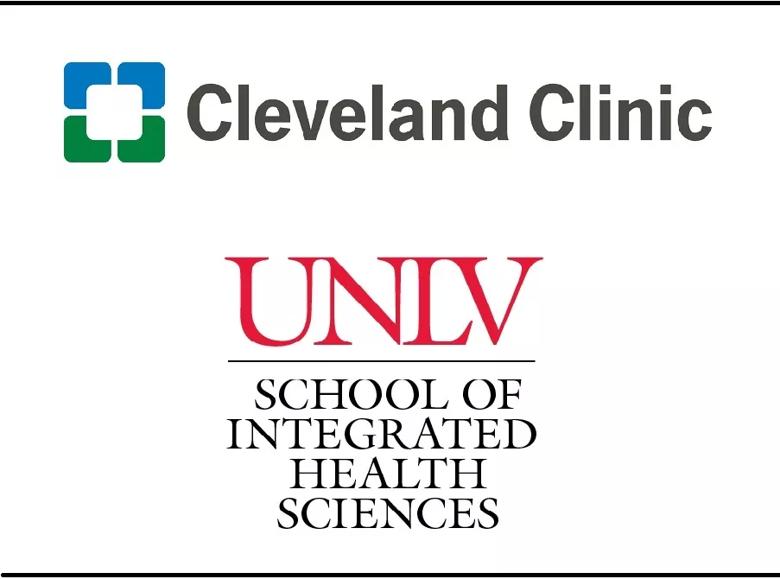Collaboration between Cleveland Clinic Lou Ruvo Center for Brain Health and University of Nevada, Las Vegas, to enhance neuroscience research infrastructure in southern Nevada

LAS VEGAS: The National Institute of General Medical Sciences (NIGMS) of The National Institutes of Health (NIH) has awarded a grant expected to total $11.3 million to fund phase 2 of southern Nevada’s first Center of Biomedical Research Excellence (COBRE): The Center for Neurodegeneration and Translational Neuroscience (CNTN).
The five-year continuation of the COBRE award builds upon a long-standing collaboration between Cleveland Clinic Lou Ruvo Center for Brain Health and the University of Nevada, Las Vegas (UNLV), to continue the efforts of their shared CNTN. The phase 2 award is co-led by Aaron Ritter, M.D., of the Lou Ruvo Center for Brain Health and Jefferson Kinney, Ph.D. of the Department of Brain Health at UNLV.

Image content: This image is available to view online.
View image online (https://assets.clevelandclinic.org/transform/1ad10744-ab92-46be-a739-58c76d8b2c68/cc-unlv-lines_jpg)
The CNTN is aimed at establishing translational neuroscience research infrastructure through basic and clinical research, and supporting junior investigators in developing innovative approaches to the understanding of neurodegenerative disorders. The only COBRE in southern Nevada to conduct both basic and clinical research, CNTN researchers are investigating diagnostic methods, health disparities and therapeutic interventions.
COBRE grants are part of NIGMS’s Institutional Development Award (IDeA) program, which supports faculty development and research infrastructure enhancement in states with historically lower levels of support from the NIH.
In addition to faculty development, during phase 1 of the CNTN, researchers from both the Lou Ruvo Center for Brain Health and UNLV created a robust research infrastructure consisting of data management and analysis, advanced imaging and innovative research projects aimed at understanding the commonalities among neurodegenerative diseases.
Building upon the efforts of phase 1, phase 2 of the CNTN will focus on developing the resources and processes necessary to achieve long-term sustainability. Its aims include:
“The continuation of the CNTN for another five years creates a tremendous opportunity to expand on the biomedical capabilities in southern Nevada. Our approach is truly translational in establishing research teams from UNLV and the Lou Ruvo Center for Brain Health across many disciplines to collaborate on projects,” said Dr. Kinney. “As we have seen from the success in phase 1, this interdisciplinary approach advances our understanding and ability to treat these devastating diseases, while also paving the way for future discoveries by us and others.”
The CNTN is supported by NIH grant: P20GM109025.
About Cleveland Clinic
Cleveland Clinic is a nonprofit multispecialty academic medical center that integrates clinical and hospital care with research and education. Located in Cleveland, Ohio, it was founded in 1921 by four renowned physicians with a vision of providing outstanding patient care based upon the principles of cooperation, compassion and innovation. Cleveland Clinic has pioneered many medical breakthroughs, including coronary artery bypass surgery and the first face transplant in the United States. U.S. News & World Report consistently names Cleveland Clinic as one of the nation’s best hospitals in its annual “America’s Best Hospitals” survey. Among Cleveland Clinic’s 67,554 employees worldwide are more than 4,520 salaried physicians and researchers, and 17,000 registered nurses and advanced practice providers, representing 140 medical specialties and subspecialties. Cleveland Clinic is a 6,026-bed health system that includes a 165-acre main campus near downtown Cleveland, 19 hospitals, more than 220 outpatient facilities, and locations in southeast Florida; Las Vegas, Nevada; Toronto, Canada; Abu Dhabi, UAE; and London, England. In 2019, there were 9.8 million total outpatient visits, 309,000 hospital admissions and observations, and 255,000 surgical cases throughout Cleveland Clinic’s health system. Patients came for treatment from every state and 185 countries. Visit us at clevelandclinic.org. Follow us at twitter.com/ClevelandClinic. News and resources available at newsroom.clevelandclinic.org.
About the Lou Ruvo Center for Brain Health
Cleveland Clinic Lou Ruvo Center for Brain Health, which opened in 2009, provides expert diagnosis and treatment for individuals and families living with Alzheimer’s disease, Lewy body, frontotemporal and other dementias; Parkinson’s and Huntington’s disease, multiple system atrophy and other movement disorders; and multiple sclerosis. With locations in Cleveland, Ohio; Weston, Florida and headquarters in Las Vegas, Nevada, the center offers a continuum of care with no-cost opportunities for the community to participate in education and research, including disease prevention studies and clinical trials of promising new medications. An integrated entity, Keep Memory Alive, raises funds exclusively in support of the Nevada location. Clevelandclinic.org/Nevada.
About the UNLV Department of Brain Health
The UNLV Department of Brain Health was launched by the School of Integrated Health Sciences (SIHS) in 2019 to advance research, education, and practice to benefit brain health and the care and treatment of people with brain disorders. The department’s faculty specialize in basic and clinical research in neurodegenerative disease, neuropsychology, and occupational therapy.
Editor’s Note: Cleveland Clinic News Service is available to provide broadcast-quality interviews and B-roll upon request.